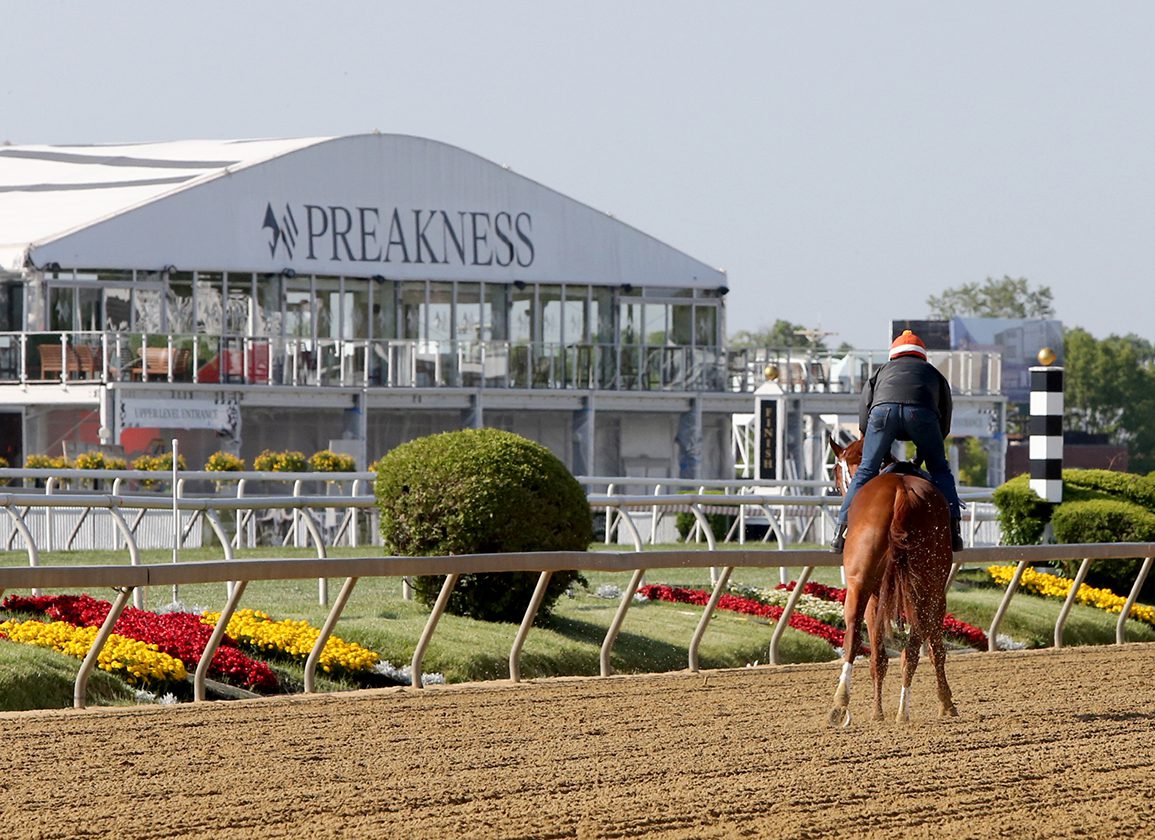By Dan Ross
A bill to radically reform Maryland's racing industry has passed both chambers of the state legislature, with the House voting 105-32 Monday night to approve a project that will see among other things ownership of Pimlico Race Course transferred from 1/ST Racing and Gaming to the state and the establishment of a year-round training facility for Maryland's horsemen and women.
After the Maryland House of Delegates initially passed the legislation unanimously, the bill was subsequently amended by the Senate. This amended bill was then sent back to the House for Monday's concurrence vote.
The legislation will now go to the desk of Maryland Governor Wes Moore for a final signature, with a veto seemingly unlikely.
“I've worked with governors going back to the mid- to late-1970s in Maryland, and most were very supportive of the industry in one shape or form. But Governor Moore was absolutely committed to this project. His support was instrumental in getting this passed,” said Alan Foreman, voting member of the non-profit Maryland Thoroughbred Racetrack Operating Authority (MTROA), about passage of HB 1524, otherwise known as “Pimlico Plus.”
The MTROA is an industry-led non-profit created last year by the legislature to essentially oversee and help facilitate the Pimlico Plus plan. Pending gubernatorial approval, the rollout of the plan will be a multi-year project beginning June 1, when the law goes into effect.
Among key provisions of the plan, the legislation requires the formation of a non-profit to manage daily operations of Maryland's new industry infrastructure. Those responsibilities are currently filled by the Maryland Jockey Club, owned and operated by 1/ST Racing. The MTROA will have ultimate oversight of this new entity.
“Like the [New York Racing Association] reports to the franchise oversight board, the entity to be created in Maryland will report to the MTROA,” said Foreman.
Though much-needed renovations to Pimlico could begin later this year, said Foreman, the 2025 Preakness is still expected to be staged at the Baltimore track, with the 2026 edition set to be hosted temporarily at Laurel Park.
“After Preakness 2025, Pimlico will undergo full construction, and the plan is that the 2027 Preakness will be at Pimlico under the auspices of the new non-for-profit.” said Foreman. “For the horsemen, racing will be conducted at Laurel for the next three years.”
Like Pimlico, Laurel is currently operated by 1/ST Racing under the umbrella of The Stronach Group (TSG). Transfer of Pimlico from 1/ST Racing to the state comes at a nominal one-dollar price-tag.
The MTROA has already negotiated a licensing agreement with 1/ST Racing to operate and promote the GI Preakness S. and the GII Black-Eyed Susan S., Maryland's two signature races.
“It's a 10-year agreement with five-year renewals,” said Foreman. “After ten years, if the state wanted to buy it out, it could. But any renewals would be for five-year intervals.”
Complementing a revamped Pimlico will be the selection of a year-round companion training facility to accommodate the horses not stabled at Pimlico. According to Foreman, some 1,300 horses are expected to be split evenly between the two facilities.
The MTROA has identified eight potential training facilities for purchase, rating them by several criteria, including their location, size, cost to purchase and cost of redevelopment. According to this rating system, two facilities come out jointly on top: Shamrock Farm and Mitchell Farm Training Center.
Shamrock Farm Training Center is a 155-acre facility just over 20 miles from Pimlico. Mitchell Farm Training Center is a 97-acre facility near the Aberdeen Proving Ground. The third-rated facility is the Bowie Race Track, a 131-acre training facility.
The legislation also allows the Maryland Stadium Authority–a state-founded entity to help fund and operate key building projects in Maryland–to issue $400 million in bonds to help bankroll the Pimlico Plus plan.
Ultimately, ownership of Laurel Park will be transferred fully to TSG for redevelopment at the beginning of 2028, “unless we have to extend the lease,” said Foreman.
According to Foreman, state taxpayers won't be on the hook should the non-profit formed to manage daily operations going forward run into operating deficits.
“If there's an operating loss when the non-for-profit takes over, the Thoroughbred purse dedication account has to backstop the losses. It will not come from taxpayer dollars,” said Foreman.
“I can't overstate the historical moment this is for Maryland racing. It's historical for the City of Baltimore. This is great for the City of Baltimore. It stops decades of worries about Pimlico and the future of the Preakness in Maryland and Baltimore. It's great for the Park Heights community. And I think it's great for the racing industry overall,” said Foreman.
Not a subscriber? Click here to sign up for the daily PDF or alerts.






